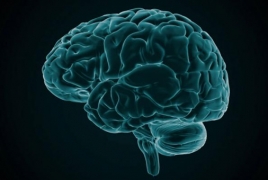
The largest brain imaging study of children ever conducted in the United States has revealed structural differences in the brains of those whose parents have depression.
Depression is a common and debilitating mental health condition that typically arises during adolescence. While the causes of depression are complex, having a parent with depression is one of the biggest known risk factors. Studies have consistently shown that adolescent children of parents with depression are two to three times more likely to develop depression than those with no parental history of depression. However, the brain mechanisms that underlie this familial risk are unclear.
A new study, led by David Pagliaccio, PhD, assistant professor of clinical neurobiology in the Department of Psychiatry at Columbia University Vagelos College of Physicians and Surgeons, found structural differences in the brains of children at high risk for depression due to parental depressive history.
The study was published in the Journal of the American Academy of Child & Adolescent Psychiatry.

